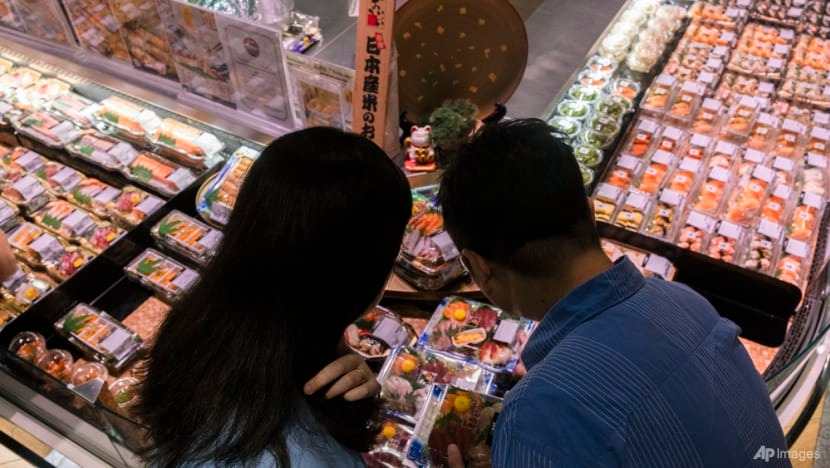Japanese restaurants in Hong Kong expect dip in business with import ban on seafood from Japan
28 August, 2023

Some Japanese restaurants in Hong Kong are expecting a 30 per cent dip in business, after the city's import controls on seafood from 10 Japanese prefectures kicked in on Thursday (Aug 24).
This comes as Japan began discharging treated radioactive wastewater from the Fukushima nuclear plant.
Hong Kong is Japan's second largest market for seafood exports after mainland China, and the import ban has placed some eateries in a spot.
“We expect that business will further drop by another 20 to 30 per cent or even more for some high-end restaurants,” said Hong Kong Federation of Restaurants and Related Trades president Simon Wong. “For the high-end restaurants, most of their products are directly air-flown from Japan to Hong Kong on the same day. And if they don't have enough varieties or quantity of fishery products for the restaurant, then the business will be affected.”
Mr Wong believes the supply shortage will not lead to a spike in price, as the priority of merchants is to retain their customers.
SEEKING ALTERNATIVES FROM OTHER SOURCES
The import ban applies to 10 prefectures including Tokyo, Fukushima and Nagano. It covers all fresh, frozen, chilled, dried or processed seafood, as well as sea salt and seaweed.
Overall, this accounts for about 10 per cent of Japanese seafood imports into Hong Kong.
Neighbouring Macau also implemented the ban from Thursday, covering goods from the same Japanese regions.
G One Sushi Japanese Restaurant owner Carl Siu said customer's confidence is a big concern for his business.
“Our conservative estimate is that business will initially decline by 40 per cent to 50 per cent,” he said.
“We believe that the quality of Japanese seafood is incomparable to other regions. We have been seeking alternatives from other sources to provide our customers with multiple choices.”
The ban will hit his restaurant hard, as the products from the banned Japanese regions account for about 20 per cent of his offerings.
"For instance, our sea urchins are from Hokkaido, and most of the farmed fishes are from Kyushu. However, since many oyster farms are located in the banned prefectures, that would bring severe impact (to our supplies),” Mr Siu said.
“If there could be something like consumer vouchers or direct financial support (from the government) for our restaurants, that would be the best solution.”
TAKING A CONSERVATIVE AND SAFER APPROACH
The government had earlier said it will not disburse financial support, as it has given ample time for restaurants to plan ahead.
But many are only just recovering from the economic fallout of the COVID-19 pandemic restrictions, said observers.
To mitigate the impact of the import ban, the government is issuing certificates to restaurants that offer safe seafood.
While Japan has maintained that the treated radioactive wastewater is well within international safety standards, Hong Kong said it is reasonable to be worried.
“We are taking a more conservative and safer approach, to assure Hong Kongers that all Japanese food imports are safe, and they can consume them with peace of mind,” said Hong Kong’s Secretary for Environment and Ecology Tse Chin-wan.
“I think that’s the best measure for our Japanese restaurants as well as maintaining the relations between Hong Kong and Japan on food trading.”
On when Hong Kong will lift the ban, Permanent Secretary for Environment and Ecology (Food) Vivian Lau said: “There are a basket of factors that we consider, for example, if the discharge system claimed by Japan is working normally, and we will look at the radiation level of seawater and aquatic products.
“Some experts have said that if we want those data to be convincing to other economies, the Japanese government may consider a third-party participation and certification of the data.”
Hong Kong will be releasing screening results of Japanese food imports daily, and conduct its own study on radiation levels in local waters.
Useful Links:
Source: www.channelnewsasia.com
